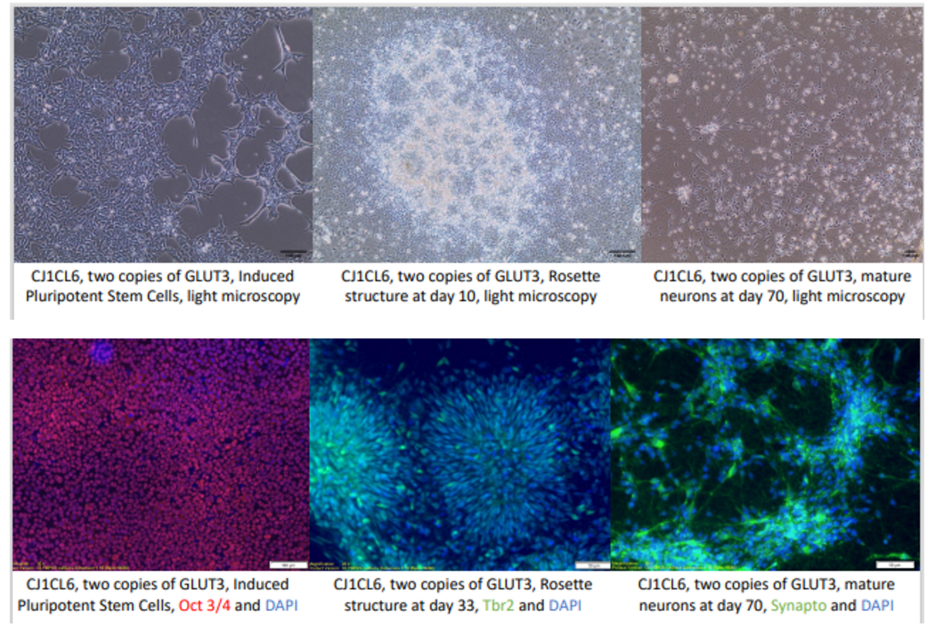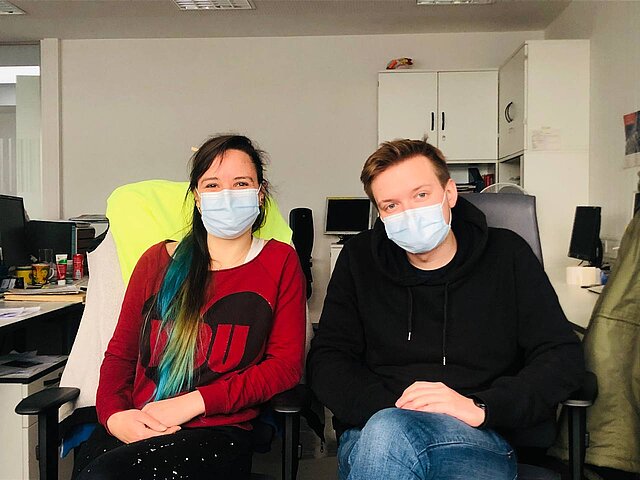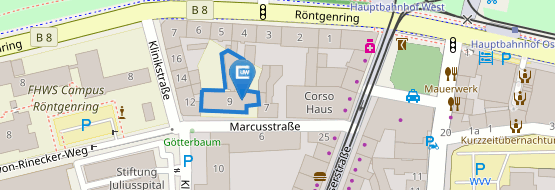Introducing the PhD Researchers: Ana Magdalena Pineau (Project B3)
17.01.2023The new year starts with another interview of a PhD researcher: Ana Pineau is a PhD researcher in project B3 ("Adaptive and maladaptive cortico-striatal processes in impulsivity-driven approach behaviour") under the supervision of Prof. Dr. Klaus-Peter Lesch.
Before Ana started her PhD, she studied biochemistry and then neurosciences and cells signaling with a strong interest in biochemical pathways within the brain and neuronal culture derived from induced pluripotent stem cells (iPSC's).
Thank you for agreeing to a short interview, Ana. Could you start by explaining your research area in more detail?
"I’m working on the glucose transporters of the neurons. In the body, we have different glucose transporters that transport the sugar from the extracellular environment to inside cells that they can use to have energy and can work properly. One of the glucose transports, called GLUT3, is mainly found in neurons. Neurons mainly rely on this transporter to get their glucose. The genes coding these glucose transporters have a copy number variation meaning that some people have two copies of the gene, which is normal, but some people only have one or three of these genes.
I want to understand the impact of more or fewer copies of this on a molecular and cellular level. Basically, if we have a difference in the glucose transporters, does it make a change on a bigger scale: What impacts the firing activity of the neurons? Prof. Lesch’s group is interested in this question because patients suffering from ADHD tend to have more copies of the genes. So, these people might have a copy number variation. If we would find some differences in the neurons, this could help to find a (more targeted) treatment for ADHD."
What is your next research step?
"We assume a difference in the RNA and the protein levels, according to the number of copies of the glucose transporter gene. ADHD is a neurodevelopmental disorder. Our hypothesis is that differences will occur at some point during the differentiation. In the lab, we have cells coming from neurotypical people and from neurodiverse people with ADHD. And these cells have either one, two, or three copies of the glucose transporter genes. My next step is to differentiate all cells into neurons, collect them at different time points, and analyze their proteins and RNA on the molecular base."
To whom can you recommend doing a PhD?
"I think you must be really motivated and enjoy research because it can be time-consuming and also mentally demanding. It's a patient job and you must love what you do because most of the time you will be working a lot. You need to be someone who is able to navigate yourself, manage a project and think in a passionate and autonomous way.
Working with cell cultures is also not everyone's cup of tea, because you have to look after them even at weekends. I first had to learn how to handle the cells properly and take care of them. In the meantime, I need about 30 minutes (that is the minimum time per day when I only have to feed them). But that took some time and practice."
Is Würzburg a good place for an optimal PhD life?
"It's a good city to do a PhD because you have a lot of opportunities to spend your free time. There are different kinds of activities. It's easy to have a good work-life balance. Also, it's good to have something to challenge your brain in a different way besides your PhD.
Most of my friends are also PhD students or postdocs, but I didn't meet them at work, I met them at my activities! Many have a connection to science. Even if they are doing research in a different field, it's nice to have the support and external opinion and help from friends regarding the PhD, because they understand my situation and my problems and are not angry when I have to leave because I need to check something in the lab. It's not a job where I can just save my work and continue the next day and they are understanding.
For example, there is a nice capoeira group that I can recommend. It's a really nice place! When I was new in town, I felt very accepted in a short time and it was easy for me to meet new people through this group I felt directly supported.
And there are quite a few international students in Würzburg. Even though I can speak German, everyone in Würzburg actually speaks English, which is also helpful because language can often be a barrier to meeting new people. Würzburg is a younger city and a university town, so it's really easy to manage my life in English.
Also, there is quite an active student life at GSLS. There is a group of students who organize events on a regular basis. I often receive emails. I was there once and it was well organized."
What have you learned from the first year? What was a special moment? Is there something that really stuck in your head?
"The first time I managed to differentiate the cells into neurons. Seeing them grow and differentiate was a bit magical in the first month. I was so proud and so happy!"
(You can see those cells in the pictures in the interview.)
Here you can see the two Doctoral Researchers Ana Pineau and her colleague Nikita Gorbunov in their office/lab.




